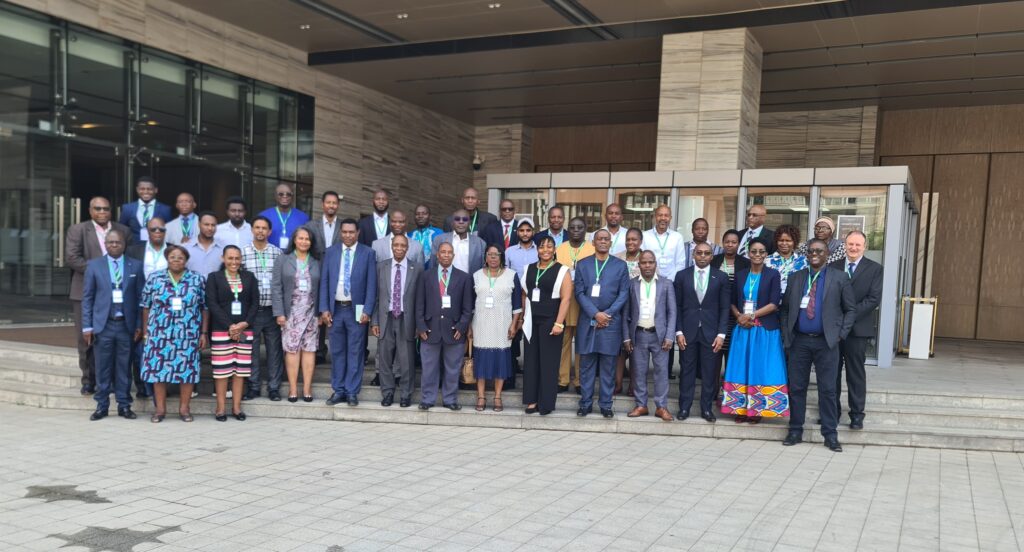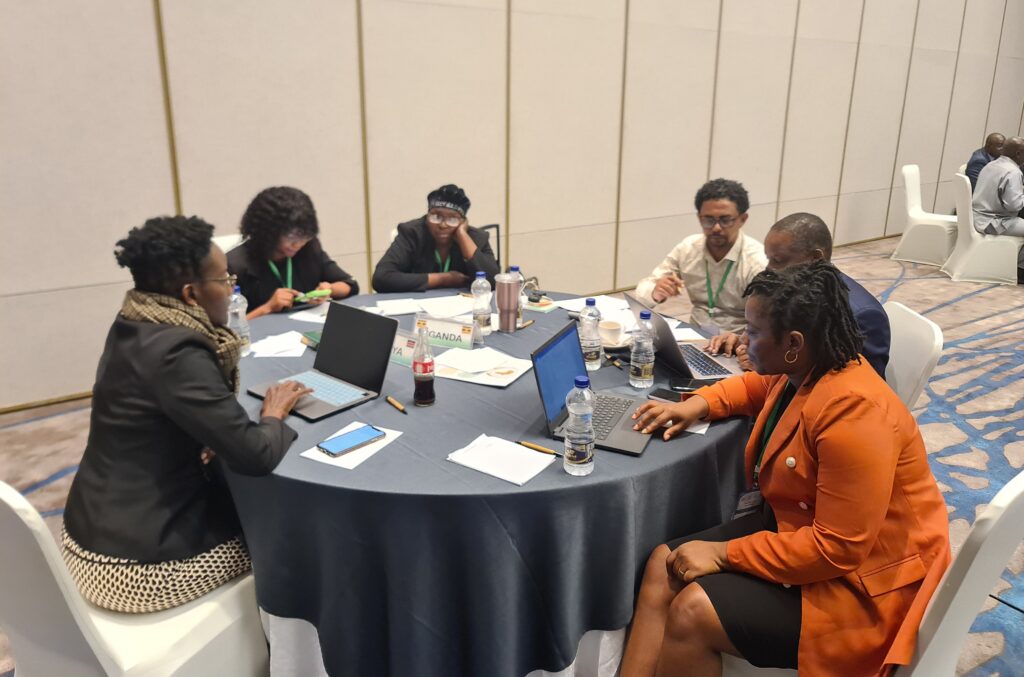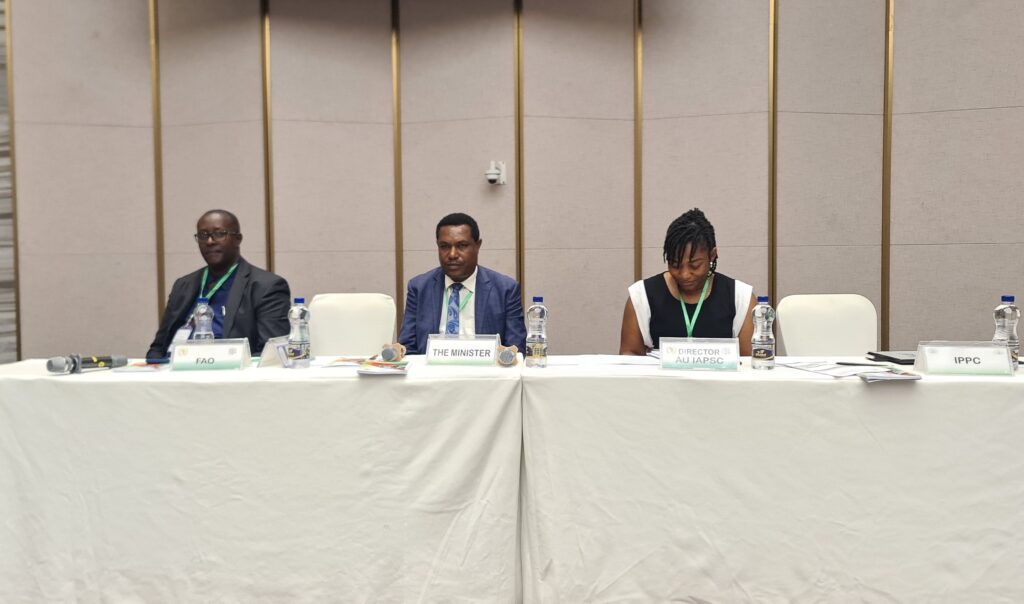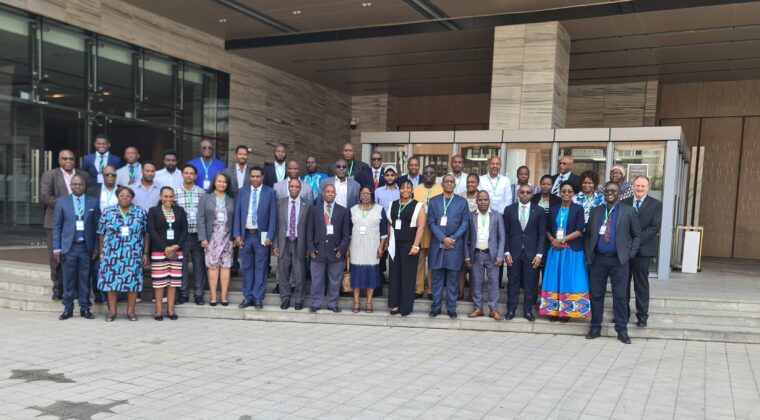IPPC regional workshop sets tone for the Africa Phytosanitary Programme
Over 40 African member states are this week gathered in Addis-Ababa, Ethiopia for this year’s IPPC Regional Workshop for Africa under the theme “Plant Health for Environmental Protection.”
Taking the centre stage at the meeting is the introduction and launch of the Africa Phytosanitary Programme (APP) which is poised to promote effective management of plant pests and diseases on the continent and help foster social and economic growth.

The participants to the IPPC regional workshop for Africa in Addis Ababa, Ethiopia.
During the workshop’s opening on Monday, IPPC Secretary Mr. Osama El-Lissy, while reiterating the significance of the program, called member states through National Plant Protection Organizations (NPPO’s) to take full responsibility of the APP and own it, for efficient and effective results.
He said APP was critical in the protection of plants as pests and diseases continue to cause significant crop damage around the world, with current statistics indicating that on an annual basis, pests destroy about 40% of agricultural crops including food crops.
“Among many benefits the APP will help with advancing technical skills across the board, help with trade at national, regional and international level -leading to economic growth and ultimately it will also help with food security,” he said.
He said the continent will determine most modalities of the programme as currently even the selection of countries is identified from each sub-region to undertake the pilot phase. The countries will also by themselves select the number of pests of significance, a process that will be succeeded by other developments including surveying, identification, diagnostic of pests.

Some of the participants in the middle of deliberations at the Regional Workshop.
In his remarks, Abebe Haile-Gabriel Assistant Director-General and Regional Representative for Africa, Food and Agriculture Organization of the United Nations (FAO) urged the member states, experts and all participants to be strategic about solutions, stressing that resolving the pest related predicament in Africa demands holistic and sustainable strategies and investment.
Speaking on behalf of her Excellency Josepha Sako, the Commissioner of Agriculture, Rural Development, Blue Economy and Sustainable Environment of the African Union Commission, Dr Sandrine Bayendi, Acting Coordinator of AU-IAPSC said the regional workshop was crucial for the continent especially for the successful implementation of African Continental Free Trade Area (AfCFTA).
“The AfCFTA is one of the flagship projects of African Union’s Agenda 2063 so any such solution that drives that agenda, and in our case to help improve management of plant health, is fundamental. We cannot talk of the protection of plants unless there is a coordinated and harmonized across the continent and AfCFTA plays a key role in that,” she said.
The IPPC Regional Workshops are held annually to help Contracting parties understand the phytosanitary realities of their countries as well helping them to build phytosanitary capacity and raise awareness on all activities related to the IPPC and to exchange national experiences at the regional level.
The participants are also taking time to learn how to effectively analyze draft International Sanitary and Phytosanitary Measures (ISPMs) and to formulate productive comments using the available draft ISPMs for member consultation; all this to strengthen phytosanitary capacity for Africa.

Through presentations, group works, field visits and other activities, participants are sharing experiences, challenges and best practices in management of plant health in their respective member states.
With the protection of natural resources as one of the areas the APP seeks to address, the workshop is also expected to deliberate the dynamics that member states through NPPO’s should consider, in tackling the climate change and its effects on plant health and subsequently on food security.



